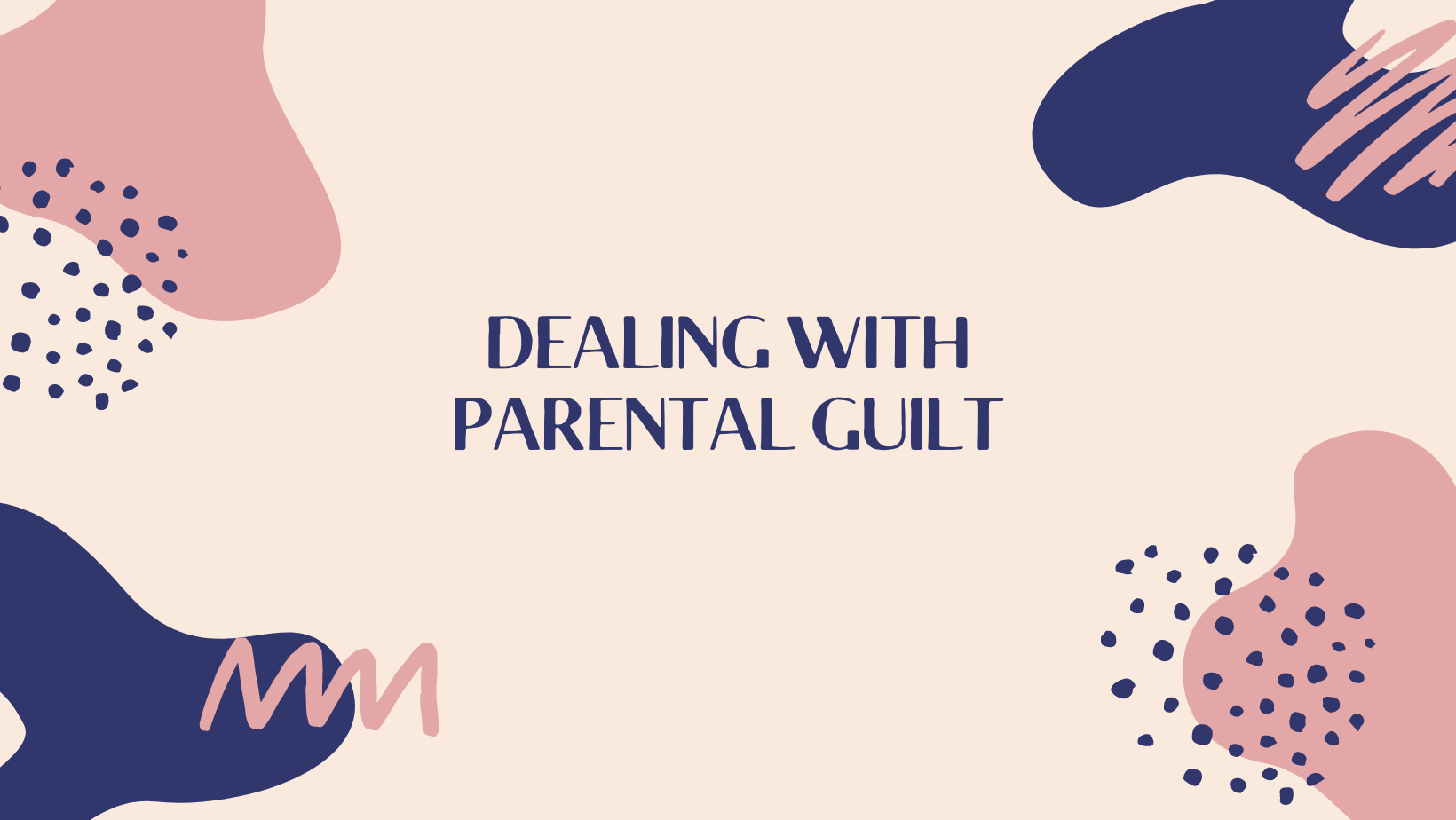Are you feeling parental guilt more due to recent events? Parents and primary caregivers of children may be feeling more stressed during the pandemic. We explore what parental guilt is and how to cope with this unique emotional facet of the pandemic.
What Is Parental Guilt?
Have you recently felt guilty about your parenting as the pandemic progresses? You’re not alone. You might feel guilty about:
● Struggling to juggle daily tasks
● Socializing difficulties
● Making difficult decisions
● Falling behind on school work
The list doesn’t end there, but it is a small example of the unending sources of guilt as a parent or guardian. Typically, this kind of guilt creates a powerful intrinsic motivation to do our best for our child(ren). However, with the current pandemic complications, this feeling can spiral out of control.
Tips for Coping with Feelings of Guilt as a Parent
As a parent or caregiver, your mental health needs to be a priority. We’re introducing HubbleClub, an app that can help you monitor and even sleep train your infant. In addition to using modern tools like HubbleClub to help you as a parent, you can adapt these tips from clinical psychologists that work with parents and children regularly.
Acknowledge Your Feelings of Guilt
The first step is to spot and acknowledge the feeling of parental guilt you may be experiencing. You might feel tempted to ignore the guilt, but the only way to work through it is to face it head-on. One typical thought process that is associated with guilt is:
● Thinking “I should have” or “I shouldn’t have” (negative thoughts)
● Feeling upset, guilt, or anxious because of the negative thoughts (negative feelings)
● Behaving differently: withdrawing from family members or unintentionally snapping on loved ones (negative behaviors)
The above process becomes an increasingly negative cycle over time. You’ll need to actively break the cycle by noticing what thoughts are the most upsetting and looking into them more deeply.
One psychologist recommends drawing a responsibility pie chart. By charting out the true factors that contributed to the worldwide situation, parents can see that they are not entirely responsible for the position they and their families are facing.
You’re Not Alone in Your Feelings
You might feel like a bad parent, especially during the pandemic. Many, if not all, parents feel guilty for one or more reasons as the pandemic continues to change our lives day after day. You must remember that you’re not alone in the experience of parental guilt through these difficult times.
You might find it helpful to talk about your guilt with your partner and friends in similar situations. Share how you feel with those that you care about. You might be surprised by how many parents and caregivers feel the same way that you do.
Be Kind to Yourself
Feelings of failure can feel overwhelming as a parent or caregiver during the pandemic. You should remember to be kind to yourself. These kindnesses may include:
● Talking to yourself in a positive way
● Telling yourself the same things you’d say to another parent in your situation
● Writing yourself a compassionate note
● Believing in the kind words you or your family offer you
A practice that can help you do this is to imagine that you’re talking to another parent. Imagine what you would tell them if they were talking about feeling guilty for the same things you feel guilty about. Then listen to the words of encouragement and understanding that you would offer to them.
Adjust Your Expectations
You might feel stressed about not meeting your typical expectations during the pandemic. You might expect to maintain your usual schedule and emotional strength. The fact is everything is changing to accommodate health needs, and so do parental expectations.
Some examples of expectations that may need to change multiple times during the pandemic might include:
● Your work schedule or workload
○ Some parents are leaving jobs to help their homebound children
○ Other parents are seeking remote positions to maintain income
● Your child(ren)’s education style
○ Schools are fluctuating between in-person and at-home online courses
○ Some parents are considering adapting homeschooling
● The amount and type of socialization you and your children have
○ Digital socialization can help alleviate feelings of loneliness
● Accommodating your emotional state
○ Taking walks
○ Acknowledging your stress
○ Talking about your feelings
○ Opening discussions between your family members to explore feelings and possible solutions for your household
In a pandemic, our expectations need to be flexible to meet the changing demands we deal with daily. Give yourself a break and lower the bar a bit to accommodate these difficult times.
Focus on Your Successes
Instead of only thinking about the drawbacks and obstacles that the pandemic causes, try to shift your focus to your successful moments. Some examples may include redefining success as we live through a pandemic in the modern age. The types of success may vary from parent to parent but might include:
● Celebrating your child(ren)’s increased independence
● Looking at family photos from the past couple of years
● Remembering to stick to the essentials (good meals and restful sleep)
As a parent, sometimes the biggest success is simply getting through each day without a major meltdown. This sentiment is just as valid as ever, especially because we are facing a pandemic that seems to have no end. Try to find a few things that boost your sense of success, no matter how small they seem.
Prioritize Important Daily Tasks
As the pandemic continues to exhaust all of humanity, we all have to learn how to reprioritize the things that are truly important to each of us. Priorities can change from day to day or even hour to hour in some situations. Let go of the things that aren’t at the top of your list of priorities.
Some examples might include:
● Letting the laundry pile up for just another day
● Taking a short break for a walk or making favorite beverage when you feel utterly overwhelmed
● Letting your kids get some guilt-free screen time while you focus on finishing a work project
Every household will have different priorities, and you will have to work out what tasks are more important than others according to your lifestyle. It can help to list your tasks out and cross off the things that can wait a while longer for attention.
Remember Self-Care
Speaking of priorities, parents need to remember to take care of themselves. Busy, overwhelmed parents may remember to feed, wash, and put their kids to bed but tend to forget to include themselves. You need to eat, sleep, and care for yourself so you’re not burning yourself out.
Parents need to put their own self-care on their list of priorities and commit to taking care of themselves and their child(ren). Whether spending 15 minutes on a mediation app or grabbing a fast-food comfort meal, give yourself the self-care you need to keep your energy and motivation strong.
If you have a partner you can rely on, remember to communicate your needs with them. You both deserve breaks to recharge your batteries, and you should work together to make self-care a priority for your household. In some cases, you might be able to hire a babysitter to help make time available.
Reach Out for Support
When parents feel stressed, guilty, and generally burnt out, it’s time to reach out for support. While in-person meetings can be tricky, parents today have the option to seek online assistance and support. Some valuable examples of support can include:
● Starting a local parent chat group on your favorite social media platform
● Joining an existing online support group
● Reaching out to online therapy session platforms
● Texting your close friends and sharing your feelings and experiences
These options all encourage you to share parts of your daily life as a parent. You’ll discover that you are certainly not alone by watching the comments and responses that match your own experiences. These safe spaces help parents and caregivers realize that the strain isn’t just on them and their household.
The Bottom Line
Parental guilt is common for parents of all ages and across the world. You’re not alone, and this isn’t the first pandemic the world has survived. Some of our grandparents and great-grandparents survived or even found a way to thrive with their family through a past pandemic.
What you’re feeling as a parent, someone living through the current pandemic, is normal. You only need to discover a path that works for you and your family. With the help of your loved ones, your support system, or even your therapist, you can overcome the struggles the pandemic presents.













Share: